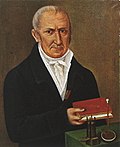Invention

An invention is a new thing that someone has made. The computer was an invention when it was first made. We say when it was "invented". New things that are made or created are called inventions. Cars and plastics are inventions that everyone knows. Inventions are made by inventors. Many inventions are patented.
Ideas are also called inventions. Writers can invent characters, and then invent a story about them.
Inventing
Over time, humans have invented objects which make life easier for themselves. Because of this, a quote "necessity is the mother of invention", was written. The quote means that a lack of something should inspire someone to create something to fill that empty space. However, not all people believe that this is true. They think that too much of something can lead to an invention. Many inventions are just a variation of something that already exists.
Invention Media
'BUILD YOUR OWN TELEVISION RECEIVER.' Science and Invention magazine cover, November 1928
Alessandro Volta with the first electrical battery. Volta is recognized as an influential inventor.
Johannes Gutenberg's printing press was voted the most important invention of the second millennium.
A rare 1884 photo showing the experimental recording of voice patterns by a photographic process at the Alexander Graham Bell Laboratory in Washington, D.C. Many of their experimental designs panned out in failure.
Eric M. C. Tigerstedt (1887–1925) was known as a pioneer of sound-on-film technology. Tigerstedt in 1915.
Western Arabic numerals — an example of non-material inventions
Railways — probably the most important invention in land transport (railway station in Bratislava, Slovakia)
Other websites
- List of PCT (Patent Cooperation Treaty) Important Inventions Archived 2007-03-12 at the Wayback Machine (on the WIPO web site)






